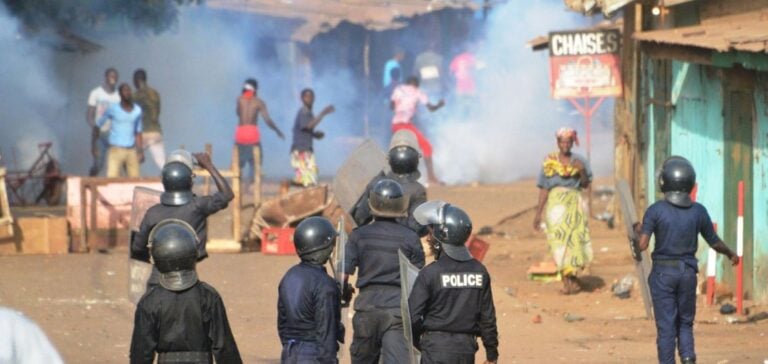The Guinean authorities have decided to sack Laye Sékou Camara, Managing Director of Électricité de Guinée (EDG), and his two deputies, Fodé Soumah and Abdoulaye Koné, in response to recurrent power cuts. At the same time, Amadou Doumbouya, Managing Director of Société Nationale des Pétroles (Sonap), and his deputy, Fatoumata Camara, were also dismissed. These decisions were formalized in decrees signed by the head of the junta, General Mamadi Doumbouya.
Crisis context and events
This series of dismissals follows power cuts that led to demonstrations in Conakry, where clashes pitted protesters against security forces. EDG attributed the blackouts to an incident on a high-voltage pylon. Tensions in the streets intensified, culminating in the tragic deaths of two children in Kindia, during protests against power cuts. These tensions had already been exacerbated in December 2023, when a fire at the main fuel depot in Conakry caused a major economic stoppage. Guinea thus faces major energy challenges, marked by fuel shortages and frequent power supply interruptions. These problems exacerbate the political crisis in a country already plagued by instability. The Prime Minister, Amadou Oury Bah, stressed that those responsible for the cuts must provide explanations and assume their responsibilities.
Political implications of the energy crisis
The energy crisis arises in a tense political context, with the military junta in power since 2021 extending its mandate until 2025, contrary to its initial commitments. This situation underlines the challenges facing the government as it strives to stabilize the country and meet the basic needs of the population.
Faced with this crisis, the Guinean government must find lasting solutions to ensure a stable supply of electricity and fuel. Energy challenges and government responses in Guinea highlight social tensions and the search for stability in a context of prolonged crisis. Future actions must focus on sustainable solutions to restore public confidence and ensure the country’s development.






















